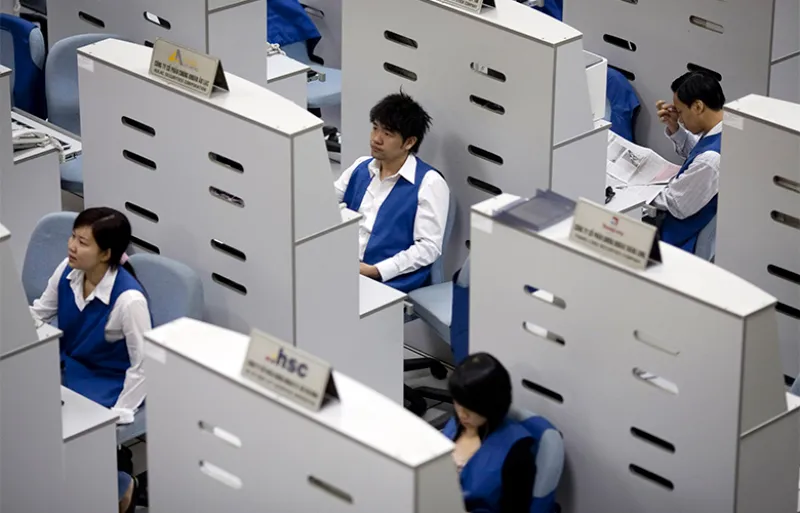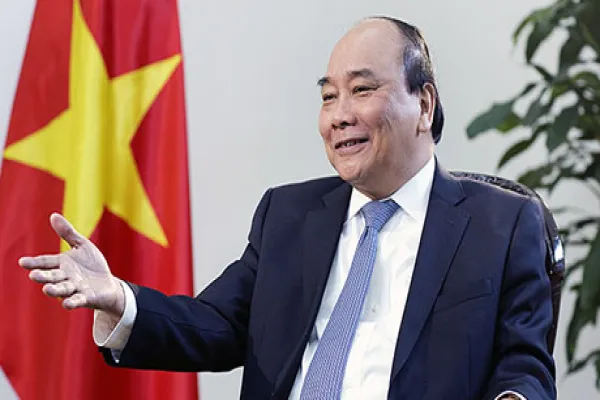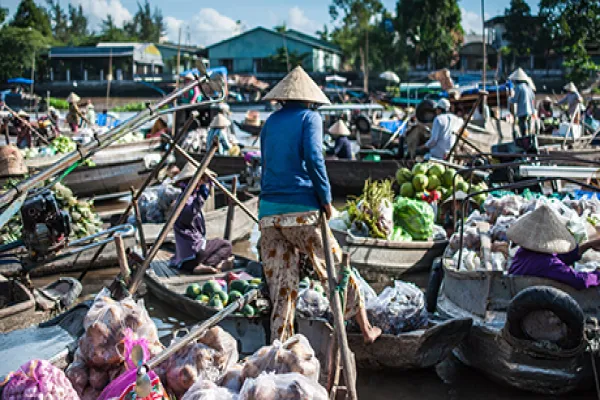Two years ago fast-growing Vietnam excited offshore portfolio investors with a decree that listed companies could for the first time let foreigners own majority shares. Since then just a handful of the 865 firms listed at the time have gone ahead.
The scheme, available to all but banks and other sensitive companies, has only crawled along because of confusion about the fine print, a stand-back approach by government, and fear among companies about the impact of opening the foreign room, investors in the country say.
“We were very optimistic at the time that this would happen across the majority of the market,” says Lawrence Brader, assistant portfolio manager at PXP Vietnam Asset Management in Ho Chi Minh City. “Initially we were delighted, and then it became clear that progress was quite slow.”
A foreign ownership limit of 49 percent was fixed before 2015 to ensure the Southeast Asian country’s ruling Communist Party kept control over its best companies.
But foreign funds wanted to own a bigger piece of the economy, which has expanded between 5.2 percent and 6.7 percent each year since 2012 largely on growth in low-cost export manufacturing. In turn, companies on the 17-year-old Ho Chi Minh City Stock Exchange were thirsting for long-term capital infusions hard to find locally, while the government was divesting from major companies in favor of well-funded private hands that could run a business more efficiently.
When the Ministry of Finance issued Decree 60 in June 2015, investors initially thought that measure alone would invite a flood of companies to raise their limits.
But some companies are holding back because they lack a formal list of sensitive sectors that aren’t allowed to raise limits. Oil and telecoms are on the list, some suspect, and there are probably more.
Vietnam may amend its Securities Law next year to specify that listed firms held mostly by offshore investors will not be legally considered foreign entities. That designation would mean moving the headquarters offshore and facing stricter supervision by Vietnamese authorities.
“Call it an embryonic possibility of a move toward a solution,” says Fiachra Mac Cana, research head at stock brokerage Ho Chi Minh City Securities. “If they choose that particular solution, it would be very elegant [and] also an internationally recognized approach to solving the problem.”
More liberalization of foreign ownership limits would encourage New York index builder MSCI to upgrade Vietnam from a frontier market index to an emerging one, analysts in the country say. After a review in June, MSCI declined to put Vietnam on its watchlist for emerging-market inclusion.
The upgrade would obligate offshore exchange-traded funds to shift money into Vietnam in line with MSCI’s formula, a boon to the market. It would also let in investors, such as some pension funds, whose house rules prohibit positions in frontier markets, Brader says. “We would have a larger pool of potential investors,” he says.
Of the 14 companies that have raised foreign ownership limits past 49 percent, Vietnam Dairy Products is the most heavily watched. It has rising income from domestic sales and a reputation for strong management. Its net profit grew 17.3 percent in the first half of 2017, while revenue rose 11.1 percent.
Foreign funds also follow Vietnamese bedding vendor Everpia and pharmaceutical producer Domesco as promising places allowing majority foreign investment.
Vietnam’s first mover, financial services firm Saigon Securities, counts foreign investors as 51.4 percent of its total following an increase by Daiwa Securities Group from 10 percent to 17 percent, says Hang Le, chief executive officer of Saigon Securities’ asset management subsidiary. “There has been quite a lot of interest from investors,” she says.
Saigon Securities, founded 18 years ago, had reached its 49 percent foreign investment cap before the decree came out. It opened to 100 percent in September 2015 when the decree took effect.
Some firms fear foreign investors will use their majority shares to take over management, forcing more transparency and insisting on the use of international accounting — neither outcome necessarily welcome. They might also fear being merged with a foreign investor.
Among the foreign funds, “there are those who are happy . . . as a silent minority passive investor,” says Frederick Burke, partner at international law firm Baker McKenzie in Ho Chi Minh City. Because of the slow pickup on companies allowing majority foreign investment, he says, “they’re quite frustrated.”
Some offshore investors do want management control, Burke adds, and “they’re locked out.”
Investors have dimmed hopes for a long list of firms open past the 49 percent foreign ownership limit. But they stay in the market to sell minority stakes at a premium due to limited liquidity and heavy demand as long as the economy grows. Foreign trade accounts for 10 to 15 percent of daily turnover and 20 percent of overall ownership, PXP estimates.
“They’re still waiting and they’re prepared to pay a certain level of premium for stocks that are high quality, and hope that when foreign ownership limits are abolished, there will be immediate convergence of domestic prices with what foreigners are paying,” says Bill Stoops, chief investment officer at Ho Chi Minh City–based financial services group Dragon Capital.
“The alternative of not doing business in Vietnam is a non-starter,” he says.






